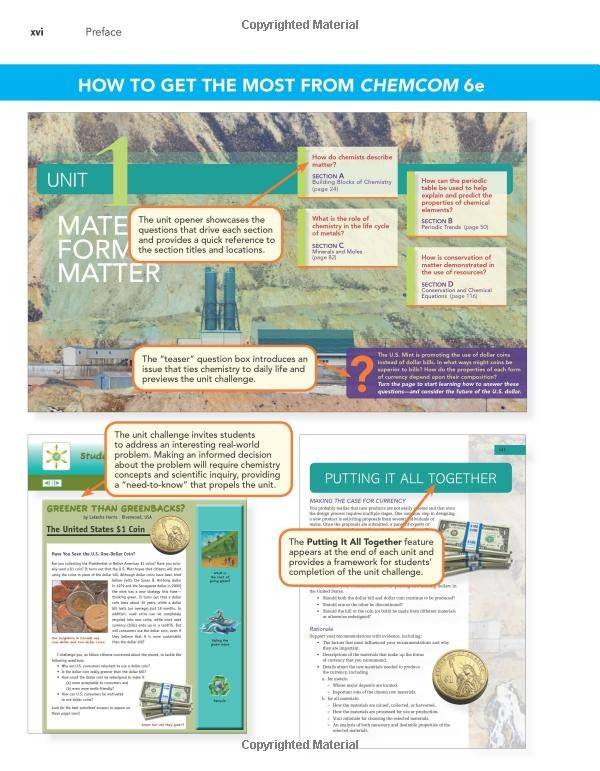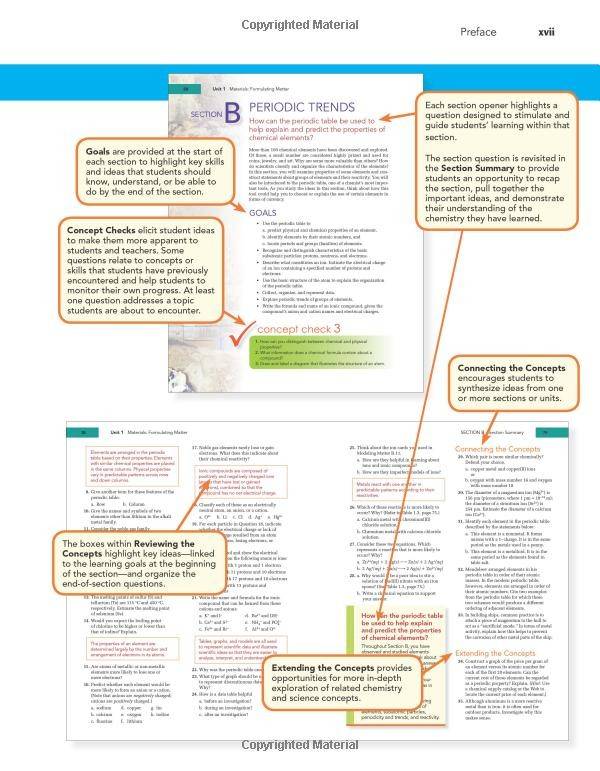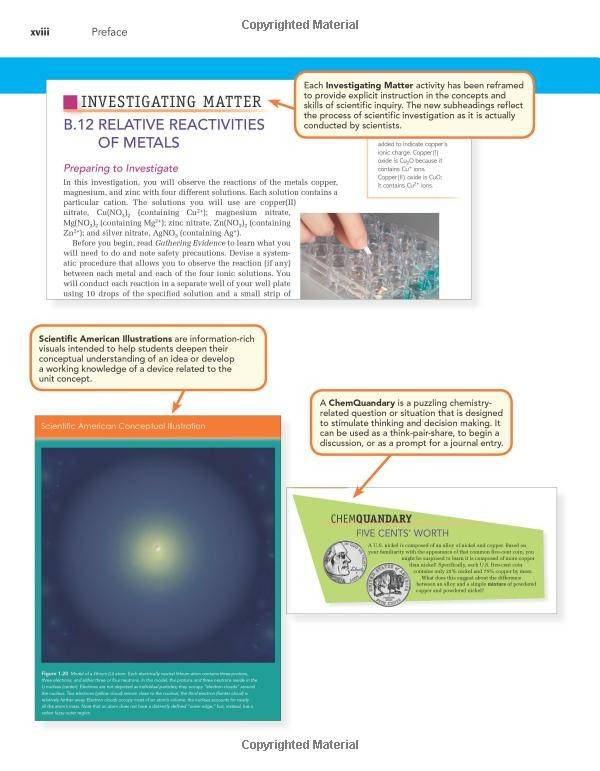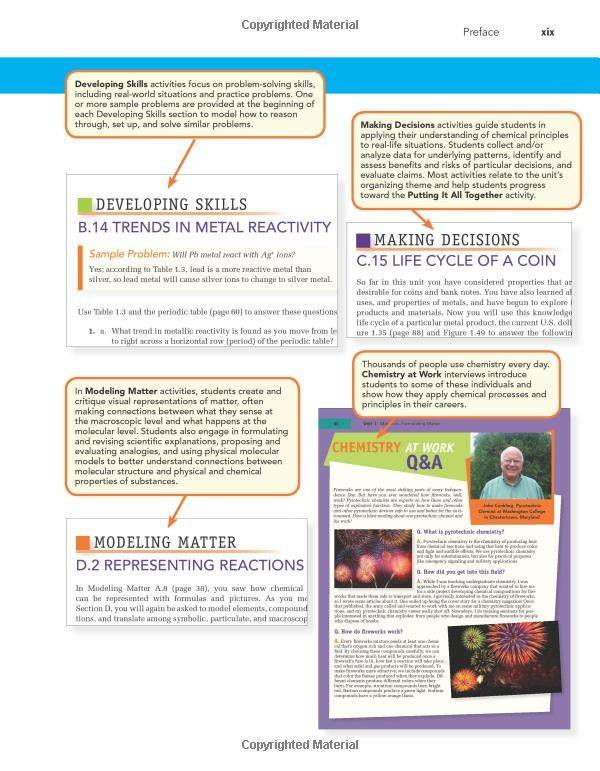Chemistry in the Community (ChemCom) is a first‐year high school chemistry textbook that teaches chemistry concepts through the lens of societal issues. The seven units use real‐world examples to expose students to concepts in materials science, environmental chemistry, organic chemistry, biochemistry, and industrial chemistry. Learn more about the philosophy of ChemCom.
Professional Development opportunity
The American Association of Chemistry Teachers (AACT) hosted a webinar in May 2018. Watch the archived webinar presented by Textbooks Manager, Emily Abbott, about what ChemCom offers: hands-on, engaging, relevant chemistry lessons focused on real-life scenarios.
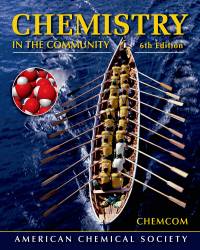
Features
Scaffold Learning
Concepts are introduced and then revisited later once students are exposed to the fundamentals. For example, redox chemistry is introduced in Unit 1 in the context of properties of neutral metals vs. ions, but it is more closely investigated in Unit 5 in the context of how batteries work.
Scientific American
Illustrations by Scientific American explain concepts and add a dimension of graphic sophistication and pedagogical excellence to the text. Each unit includes at least one detailed image that carefully illustrates and explains phenomenon on the atomic level.
Modeling
To understand the relationship between macroscopic observations and what happens on the atomic level, concepts are explained using models. Students are challenged to create their own models to deepen their understanding of chemistry concepts and avoid developing misconceptions.
Lab Curriculum
Investigations are built into the text, so there’s no need to develop your own labs. Each activity is written following the Science Writing Heuristic, which encourages inquiry and guides students through experiments as real-life scientists conduct experiments.

